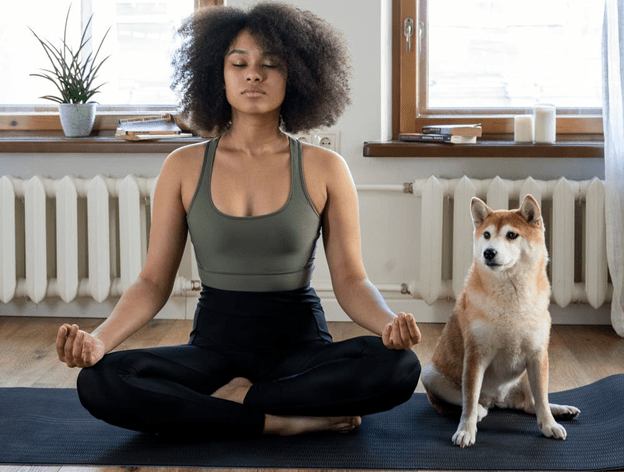
The COVID-19 pandemic has continued throughout 2020, and with people cooped up in their homes, working from home, or staying isolated, it won’t be long for many to give in to their anxiety and stress. Studies have found that social isolation is linked to serious health issues, such as depression, insomnia, cognitive decline, and impaired immunity. If you are among those who are feeling isolated and suffering from these adverse health problems, then you should seriously look at mediation as a way to prevent this. Here’s how mindfulness can help you deal with this stressful time:
Motivate You to Move
Mindfulness is a great way to encourage you to move. You have to understand that any amount of physical movement helps release excess energy build-up to help you cope with acute stress. Engaging in activities such as yoga, stretching, and dancing can help uplift your spirit. It also helps to give yourself a few minutes to do mindful breathing to help you shake off some uncomfortable physical stress.
Shake Off Physical Stress
To do mindful breathing, you should take three long and deep breaths. Find your rhythm, taking careful time to take longer exhales than inhales. One way to do this is to practice inhaling for four counts, then holding it for two counts, and exhaling for six counts. If it is hard at first, you can follow the 3-1-4 rhythm.
Improve Sleep Patterns
One of the downsides of isolation is erratic sleep patterns. When you practice mindfulness, you can condition your mind to think of positive thoughts and exclude the negativity. When you are in your bed and ready to go to sleep, it will be easier to wander your mind into things that will help you relax and go to sleep. It is also crucial in helping you enjoy quality sleep and regular sleep patterns.
Help Connect to Community
When you engage in mindfulness, you allow yourself to open up to many possibilities. If you’ve been engaging in meditation, you may soon join groups that help encourage members to yoga sessions, restorative massages, and chakra balancing in many healing centers like Master Your Mind, which tremendously helps individuals restore the lost balance brought about by isolation. Increasing your social connections is critical at times of uncertainty. You can still practice physical distancing while staying connected.
Contributing to Others
When you are isolated, it is easy to feel like you are alone. However, once you connect to like-minded individuals, you can see the benefits of reaching out and helping others cope with isolation. Mindfulness teaches you to contribute to others’ wellness by shifting attention from ourselves into what can help others. Not only will you help others, but you are also benefiting from the positive impacts of helping out. There are many ways on how you can help. For instance, you can help small businesses by buying items and supporting their cause. In your own little way, you can contribute to their welfare.
Adopt Healthy Habits
Mindfulness can also help you adopt healthy habits. When you are aware of your actions’ impact, it can affect the choices that concern your health—for example, wearing masks while out can help you protect yourself and others as well.
It is still unknown when the threat of coronavirus will end. While there is uncertainty, it is best to prepare for the new normal. This means that we should all help ourselves cope and find ways that will allow us to live longer and healthier. When you feel like you are on the brink of breaking down, it doesn’t hurt to reach out to people.
